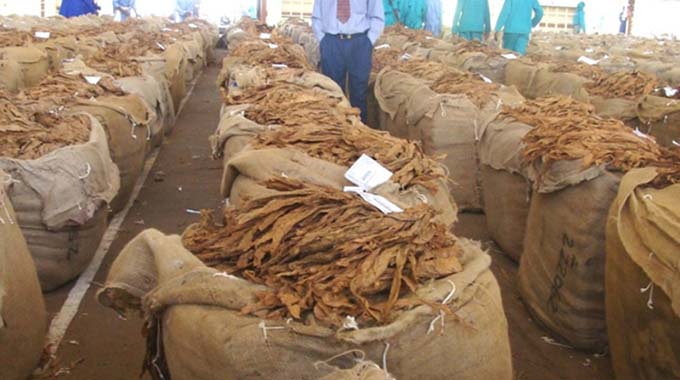
Herald Reporter
Tobacco auctions join mining and manufacturing in the latest set of exemptions to the national lockdown under a statutory instrument gazetted yesterday that gives legal force to President Mnangagwa’s statement about exemptions on Sunday.
SI93 of 2020, the fourth amendment to the original lockdown regulations, was made by the Minister of Health and Child Care, Dr Obadiah Moyo, in terms of the original Covid-19 containment regulations and after consultation with the President, as is required in lockdown provisions.
The exemptions for tobacco auctions, mining and manufacturing, and for the staff of these three sectors plus the buyers and sellers at designated auction floors, come with a number of conditions to minimise the risks of Covid-19 infection.
For a start, the “Minister responsible for Agriculture” can designate any place in Zimbabwe as an auction floor with that designation becoming effective immediately it is made. This will allow the decentralisation of tobacco sales that has been pressed as a solution to the problem of how to avoid huge crowds gathering at existing floors in Harare.
Buyers and sellers assembling at an auction floor are forbidden to remain on the site longer than is needed to complete the transactions, so farmers delivering their crop have to leave as soon as they have sold their bales and buyers must leave when they have bought all they want.
For the mining sector there are two main conditions: All employees on their first day back at work must submit to screening and testing for Covid-19 if directed by an enforcement officer; and where staff live in employer-provided housing in or next to a mining operation, they must be confined to that housing except for going to and from work and for the normal allowed reasons of buying food and medicine or seeking medical attention.
For all three new sectors, employees have to submit to any screening or testing ordered by an enforcement officer, have to observe social distancing and wear masks and use sanitisers provided by the employer when at work.
And they have to go home immediately it is found that their place of work is not a genuine manufacturing centre.
Enforcement officers have, during normal working hours of the enterprise, unrestricted right of access to ensure all conditions are being met and anyone hindering them commits a criminal offence.
